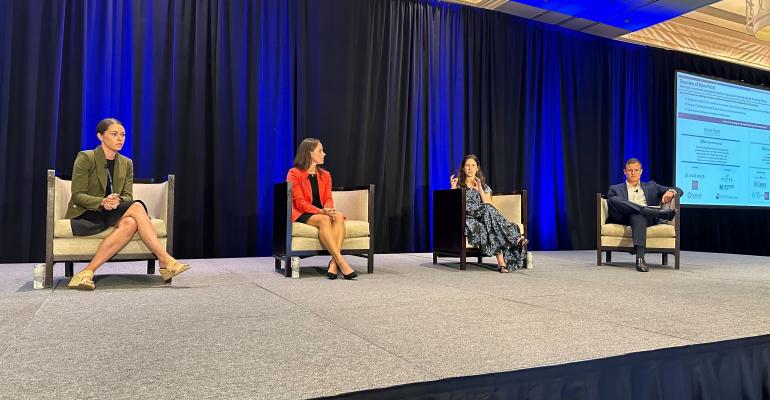Private equity investment in the wealth management space has seen a sustained record of growth over the last five years, with deals expected to increase a further 3% this year, according to the latest estimates from Echelon Partners.
At its annual Deals & Dealmakers Summit held in Laguna Beach, Calif. this week, the Echelon team brought together some of the biggest private equity players to discuss the current 'super cycle,' with private capital driving a valuation premium for wealth platforms over other financial services firms, as well as the challenges and opportunities they’re seeing in the wealth management space.
For starters, the private equity firms don’t see private investments in RIA platforms slowing down.
“There’s no doubt that there’s a lot of capital out there to go around, and I honestly don’t see that changing,” said Christina Walsh, principal at Aquiline. “If anything, I think it’ll continue to accelerate. The best kept secret—no longer a best kept secret—is that the wealth management industry is a really good place to invest.”
The RIA platforms will continue to buy up firms at a rapid pace, several speakers said at the Summit. But how they integrate those firms is crucial.
“You’re seeing some firms leaning into the integration, buying accounting firms or trust companies,” Walsh said. “But then you’re seeing others that are actually bifurcating and selling the wealth management business. I just think it’s an interesting time where you’re seeing both of those things happening simultaneously.”
Clients are increasingly looking for a one-stop-shop where they can outsource services like bill pay, etc., rather than having four or five advisors across different prongs of their financial life, she said.
Lauren Seidman, managing director at Stone Point Capital, said advisors have this huge ability to buy themselves into a platform, given how high multiples are. But it’s important to understand if the platform is really integrated. A lot of folks talk about having an integrated platform, but when you look under the hood, that's not the case.
“Is there anything differentiated about it, or is it just a bunch of small RIAs stuffed together to get to a larger AUM number?” she said. “I see a lot of folks—you can buy a bunch of things and you can put them together, but when you put them together, do the firms grow faster? Are they really consolidated? What have you integrated?”
Private equity firms also face another challenge, with competition for targets heating up, Walsh said. There may be four or five parties that are all at the same valuation bidding for an RIA platform. “It’s just a really competitive market out there.”
Julianne Hummelberg, partner at Summit Partners, pointed to wealthtech as a big industry challenge.
“The technology in this industry leaves a lot to be desired,” she said. “Looking under the hood at some of the wealth management assets, what truly is the technology stack and what is the cost to optimize that is really important to look for.”
But there’s also an opportunity for that technology to be improved.
“Client expectations and demands for technology, for personalization, customization, etc. are only going to increase as the great wealth transfer happens, and the younger generation starts to hold more control of the AUM,” she said.
Summit, nonetheless, has invested in some wealthtech firms, including Vestmark. Hummelberg says there’s an opportunity for tech entrepreneurs to improve customer acquisition cost and customer lifetime value.
Despite the challenges, the private equity players see a lot of opportunity in the space and a long runway for consolidation.
“There still remains a huge opportunity from a consolidation perspective,” Walsh said. She pointed to the fact that the number of RIAs has remained pretty flat. “Just as much as all this consolidation has happened, there’s still a huge runway for that to continue.”
For every RIA acquired, half an RIA is created, Seidman said.
You’re seeing more and more private equity firms pairing up on investments because of how large these RIA platforms have become, Walsh said.
The space is also starting to see hold periods become elongated a little bit, she added. She expects we’ll see more of what she calls “continuation vehicles,” such as where the private equity firm can sell from one fund to another.





